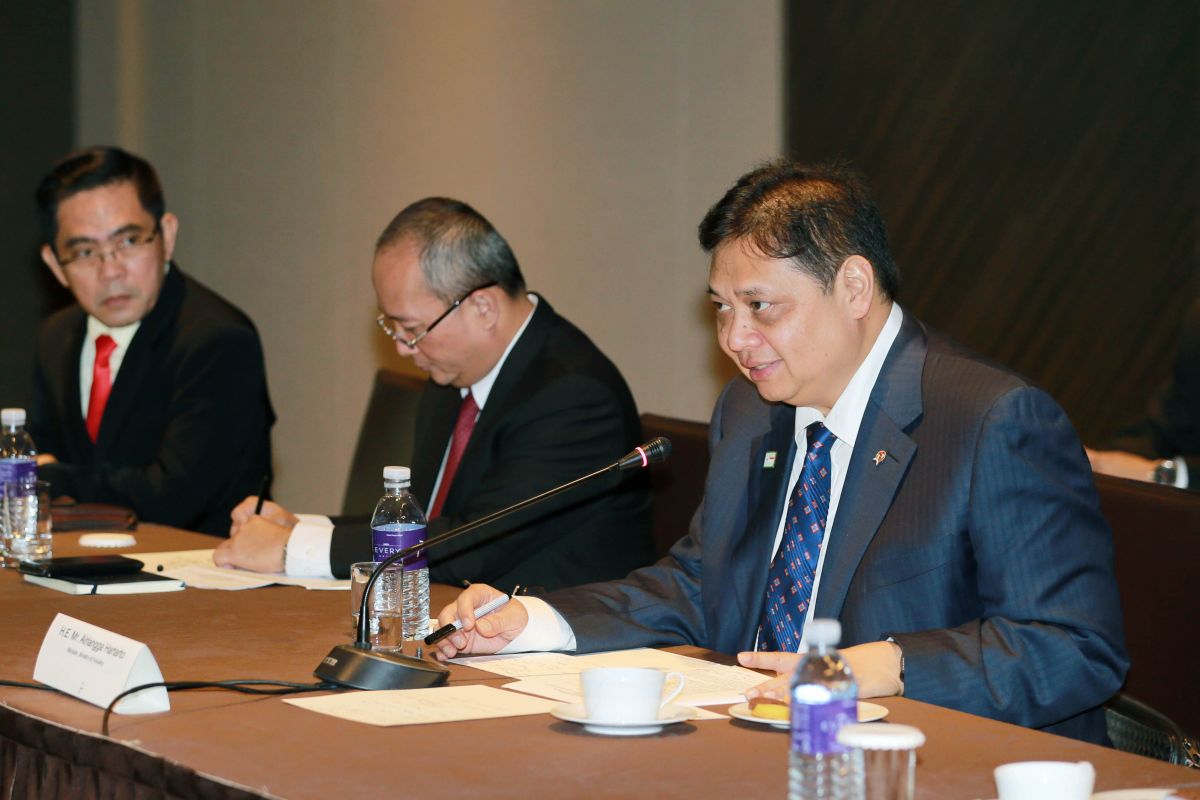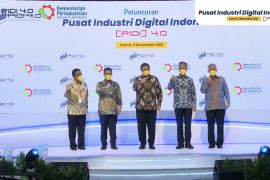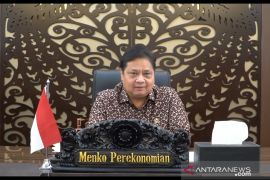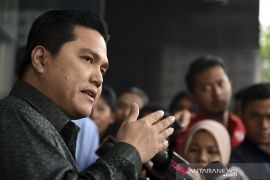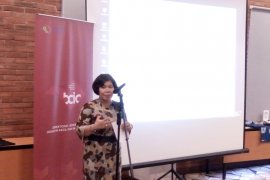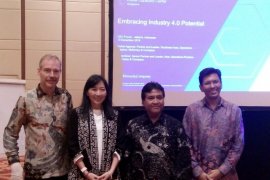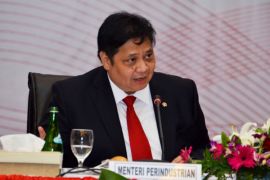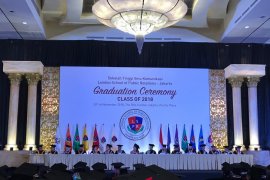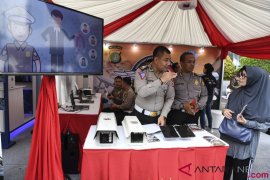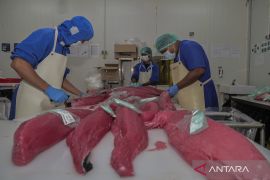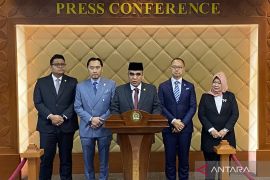In a bid to open broader opportunities for cooperation, Indonesian Industry Minister Airlangga Hartarto held a meeting with Korean Trade, Industry, and Energy Minister Sung Yun Mo in Seoul, Wednesday (June 26).
Hartarto noted that the meeting was a follow up to the leaders' get-together in September 2017.
By and large, he remarked that Indonesia and South Korea's business and economic sectors had made significant progress. Strategic cooperation had been implemented in areas, including the joint task forces to promote economic cooperation.
"We have the Indonesia-Korea Comprehensive Economic Partnership Agreement in 2019 that targets bilateral trade of up to US$30 billion by 2022," he noted in his statement, Thursday.
Currently, the Industry Ministry has reached a total of 10 international cooperation agreements with its partners in South Korea that include cooperation between units within the ministry and government institutions in Korea.
"In general, the level of implementation of cooperation between the Industry Ministry and partners in the Republic of Korea is very good, specifically nine out of the 10 agreements have been implemented," Hartarto emphasized.
During the meeting, an agreement was also inked for continued cooperation between Indonesia's Ministry of Industry and the National Research Council for Economic, Humanities, and Social Sciences (NRC) of South Korea.
The agreement is related to a memorandum of understanding (MoU) on cooperation for Industry 4.0 signed by both nations in September 2018.
Hartarto expounded that the continued cooperation will encourage the placement of technical experts, including organizing the implementation of Industry 4.0 in the five industrial sectors of automotive, food and beverage, textile, chemical, and electronic products.
"As a follow up to the MoU, we signed an agreement on the technical cooperation framework with NRC," he stated.
Hartarto also spoke at length on the development of industrial investment from South Korea in Indonesia. For instance, the POSCO steel company has invested in the past four years to produce three million tons of steel from the blast furnace process to the slab.
"We are discussing the 10 million tons steel roadmap in Cilegon for 2025 and then on building derivative industries with products, such as CRC (cold roll coil)," he pointed out.
Meanwhile, in the chemical industry, Lotte Chemicals has achieved the first milestone by building a plant with US$4 billion of investment. The plant is expected to become operational in 2020.
"Meanwhile, we are also in discussions with Hyundai Motor Corporation on its investment plan in Indonesia. In principle, we provide support for this investment," Airlangga remarked.
Furthermore, the Industry Ministry continues to support deeper collaboration in five industrial sectors to support Making Indonesia 4.0, the country's fourth Industrial Revolution-oriented strategy with the aspiration of emerging among the world’s 10 largest economies by 2030.
The five key technologies that support this vision are: the internet of things, artificial intelligence, human machine interface, robotics and sensor technology, and 3D printing
"One of the considerations is the Indonesian mobile market that amounts to 60 million. In addition, the digital economy is highly developed in Indonesia, with the support of the younger generation," Hartarto added. Related news: UI team bags Platinum Prize at Asian Students' Venture Forum
Related news: Indonesia proposes inviting n Korea to ASEAN-S Korea anniversary
Related news: South Korea to invest US$446 million in Indonesia
Translator: Yashinta Difa Pramudyani
Editor: Azizah Fitriyanti
Copyright © ANTARA 2019
